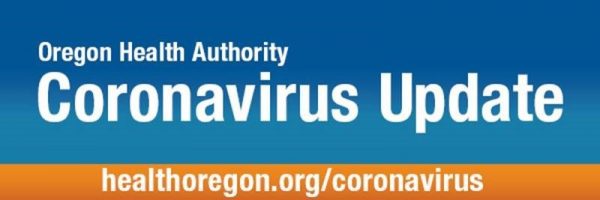The COVID-19 pandemic is reshaping how Oregonians celebrate holidays, and that includes Halloween. But it doesn’t mean Halloween this year can’t still be spooky and fun!
This Halloween, the Oregon Health Authority is recommending that Oregonians avoid traditional door-to-door trick or treating and “Trunk or Treat” events because these are high risk activities for crowding among people outside your household. This recommendation aligns with the Centers for Disease Control (CDC), which also recommends families avoid traditional trick or treating.
People in Oregon are creative, they care about their community and they know it’s important to celebrate safely. This year, it’s more important than ever to put safety first because COVID-19 cases have risen recently and holiday gatherings on Memorial Day, July 4th and Labor Day led to increased case counts. So, this Halloween, be extra mindful of your choices. Choosing low risk Halloween plans can help to prevent the spread of COVID-19 illness, decrease the impact on Oregon’s health care system and save lives.
Some ideas for safer, low-risk activities include holding an online costume contest, watching a scary movie online, carving pumpkins with people in your household, decorating your house or apartment, or touring the neighborhood to look at decorated houses with members of your household.
“If you dress up in a costume, be careful to plan a costume that allows you to wear a face covering,” said State Health Officer Dr. Dean Sidelinger. “Halloween masks will not protect you or others from coronavirus. Wearing a cloth or disposable face mask that fits snugly and covers your mouth and nose is still required while wearing a costume, no matter how scary or silly your costume is.”
For more tips to stay safe this holiday, check out these infographics about Halloween activities and how to safely visit a pumpkin patch or farm, and then share them with your friends and family on your Facebook and Instagram accounts.
Facebook Live: COVID-19 and your mental health
We know this is an incredibly challenging time for many Oregonians. As many of us continue to deal with the devastating effects of wildfires and COVID-19, we’ve heard questions and concerns about the mental health impacts of these events. Yesterday, OHA held a Facebook Live with Dr. Jon Betlinski, OHA Senior Health Advisor, and Dr. Ruth Zuniga, Associate Professor at Pacific University, to answer questions and offer tips on protecting your mental health during this difficult time. Follow the links below to view the video.
Facebook (English):
https://www.facebook.com/OregonHealthAuthority/videos/365110424672187
Facebook (Spanish):
https://www.facebook.com/108583044151897/videos/1093218321080213/
Here are timestamps of the questions:
Questions:
14:40 – How do I deal with the stress of my child’s online learning?
17:05 – I’m lonely because I’m used to spending time with family and friends. What can I do to deal with this?
18:05 – I’m a young adult who feels depressed. What can I do?
20:25 – What’s being done to support the health of university students?
21:25 – What resources are available to assist families who have hospitalized family members they’re unable to visit or who are quarantined at home?
22:48 – With winter approaching, how are people supposed to cope with COVID and mental health, particularly if they can’t meet outside?
25:50 – What about the mental health of seniors in long-term care facilities?
27:09 – Do you have tips to cope with worrying about loved ones who are in denial about the risks of COVID?
29:27 – What about people who make too much to qualify for the Oregon Health Plan and too much to be on a sliding scale, but not enough to afford health insurance to see a therapist?
30:17 – How do I cope with the stress of having COVID-19?
Contact tracing will help slow the spread of COVID-19
Contact tracing means calling people who may have been exposed to someone who has tested positive for COVID-19 to provide guidance and support. It’s a key tool for preventing the spread of COVID-19. In Oregon, local public health authorities use contact tracing to prevent the spread of many types of diseases, like measles.
Contact tracers help keep you healthy and slow the spread of COVID-19 by:
- Talking with you about how to prevent the spread of the virus, including staying home or at the location provided by public health until the danger has passed. This is known as “quarantining.”
- Providing health information on how to care for yourself and others if you start having symptoms.
- Sharing resources available in your community that can support you while you quarantine.
To learn more, visit OHA’s contact tracing website.
Oregon reports 363 new confirmed and presumptive COVID-19 cases, one new death
OVID-19 has claimed one more life in Oregon, raising the state’s death toll to 560, the Oregon Health Authority reported Thursday October 1st.
Oregon Health Authority reported 363 new confirmed and presumptive cases of COVID-19, bringing the state total to 33,862.
The new cases reported are in the following counties: Baker (1), Benton (4), Clackamas (25), Columbia (7), Coos (5), Deschutes (7), Douglas (5), Jackson (27), Jefferson (9), Klamath (1), Lane (32), Linn (16), Malheur (11), Marion (37), Morrow (2), Multnomah (71), Polk (3), Umatilla (47), Union (1), Wallowa (1), Wasco (5), Washington (36), and Yamhill (10).





